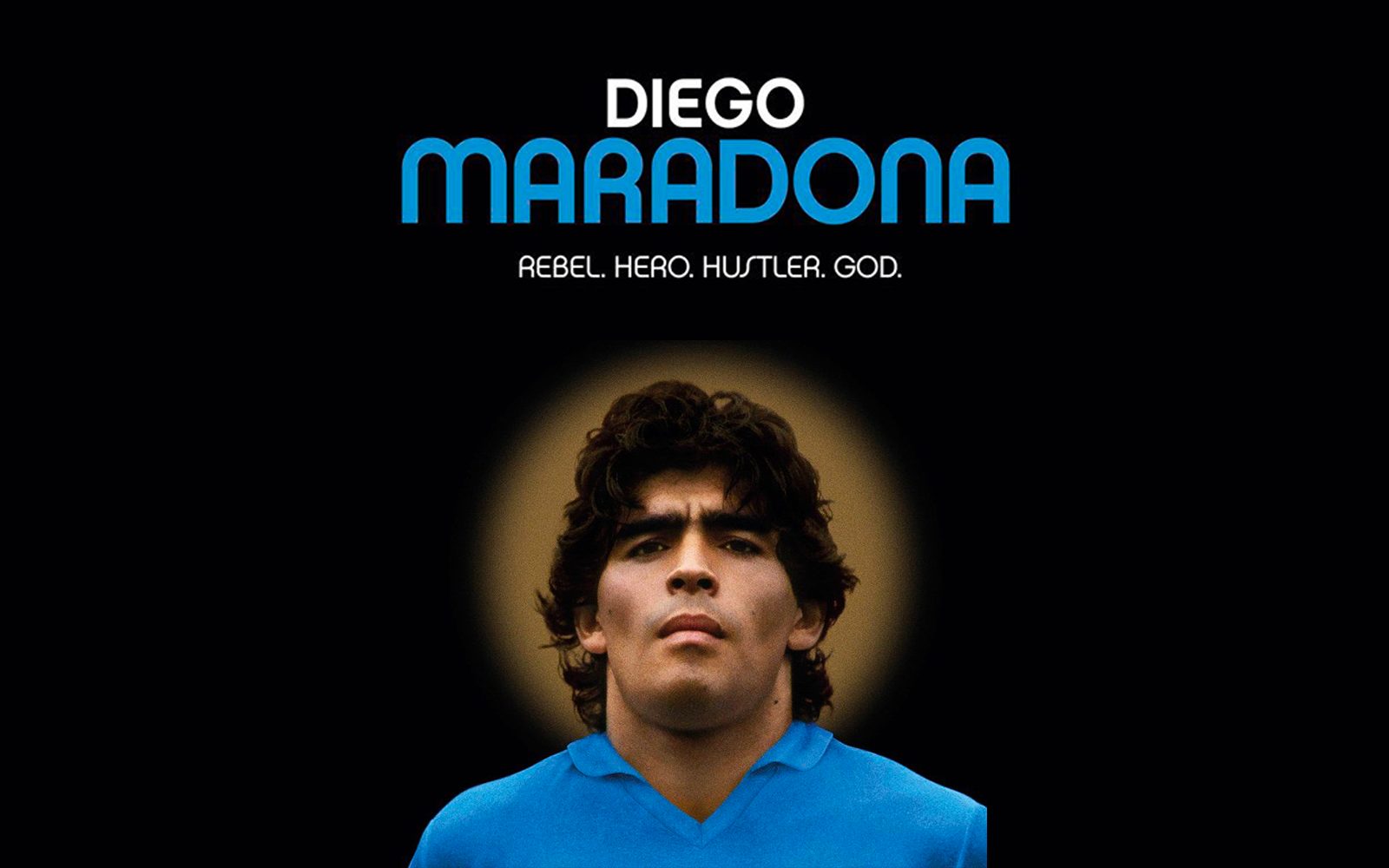British director Asif Kapadia refers to Diego Maradona as his third part of an unofficial documentary series of child geniuses and prodigies. The formers being the 2010 Senna, looking at the life and death of Brazilian racer Ayrton Senna. The second, Academy award-winning Amy centres itself on the substance abuse of singer-songwriter Amy Whinehouse. The closing film strays from the non-singular name (for a reason) and follows the rise and sin of perhaps football’s greatest player, Diego Maradona.
Selling itself with an archive of previously unseen footage there’s a calling for fans to see Diego Maradona. As a stand-alone piece for non-footy fans, it still retains an appeal. Despite Kapadia’s innate ability to stick within the confines of actual footage, straying away from new interviews, there’s a creation of a narrative. We begin with his early youth, the large family and relationships he grew up with. Moving to his signing with Barcelona to the second record-breaking sign with Napoli. Ending in the fall from grace, bitter and broken – leaving the game for coaching.
In the opening, what first appears to a be a wildly confusing car chase, with a heavy club-base dance beat sits oddly with the image of a footballer, even one known for partying. Quickly we realise that the aesthetical point was the given flavour for an eventual life-style for Maradona. This crass, speed-fueled chase which all started over one football signing which would rocket the man into stardom.
Regular collaborating editor Chris King plays with the duality of Diego’s hedonistic lifestyle but humble childhood. Editing the archive footage, King deliberately plays on this spirit of Diego as the man, Maradona as the God. Focusing on the slower pacing of home-video with Diego’s family and children. Building an establishing image of the mortal, tired, humble and playfully frugal against the contrast of Maradona. The drug and vanity-induced behemoth Napoli would worship as their own. Maradona’s vices would catch up to him as his career tapers to a close in the nineties.
Here we find Diego Maradona‘s letdown, in a twisted manner, due to Maradona still being very much alive, a great deal goes undocumented. Quite rightly, the intention is to showcase Maradona’s prowess and biblical status as a footballer, but his associations with organised crime, drug, doping and women take a tantalising backseat. Even his later admission to fathering a child thirty years ago is a footnote tacked to the epilogue. There’s a whole other documentary sitting just out of reach, and at times we would rather be watching that one. We get a comprehensive overview of Diego Maradona’s career, but a vast account of Maradona’s personal life is untouched.
As with his previous documentaries, natural ability is a focal point. For those of us who have never seen Maradona play, hell those of us who have never seen a footballer play – we grasp the adoration this man deserves. The choices made in the footage, King is able to appeal to an audience, yet focus enough on technique to showcase his talents for new witnesses.
There’s an ability in stripping back an idol, spilling their guts to the ground with the problems they face throughout talented, but problematic careers. Kapadia is usually a masterful documentarian film-maker. In truth, his sensational technique is present with Diego Maradona, but instead of the ending of an unofficial trilogy, this feels like the beginning of another. With de-construction of the man into two separate ‘beings,’ Kapadia is able to look at the mortal and the legend but leaves a little too much of the mystery unanswered.
@Filmhouse, Edinburgh from Fri 5 Jul 2019
